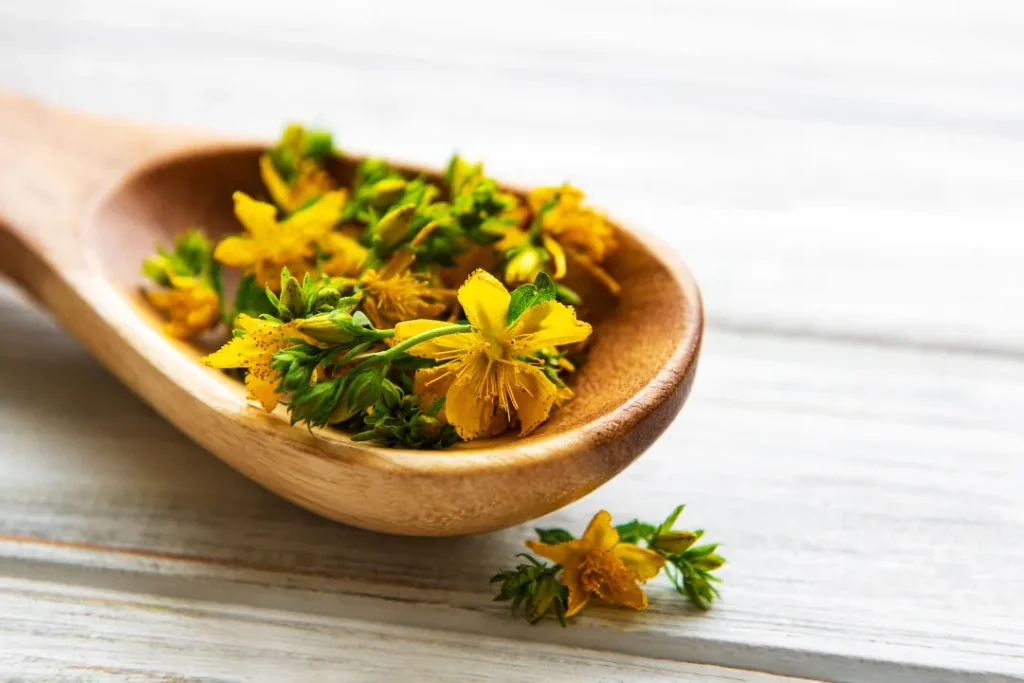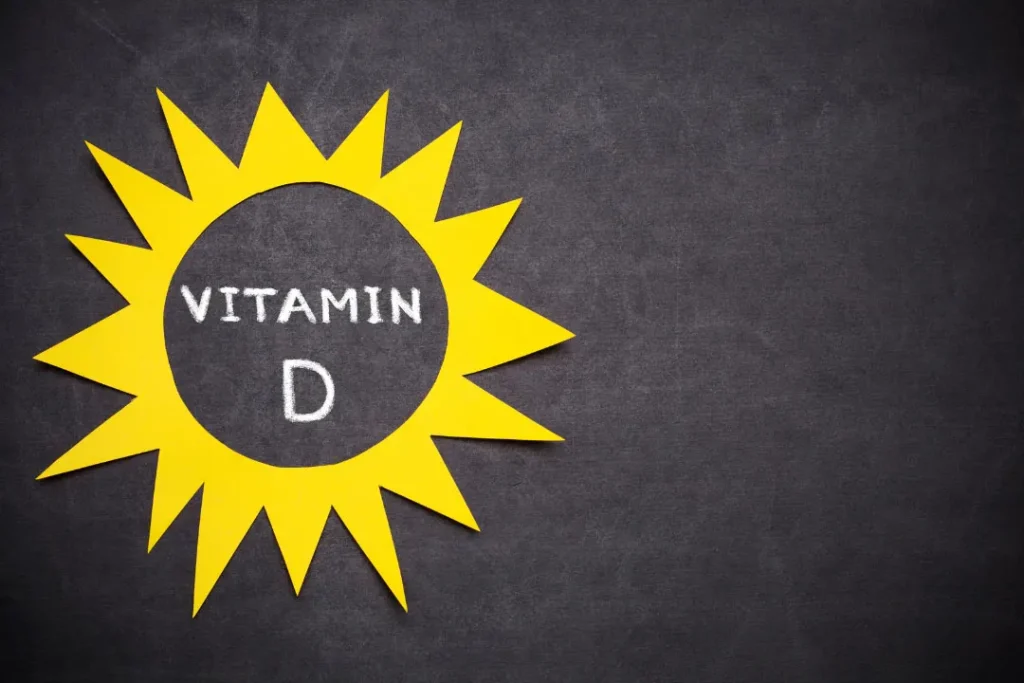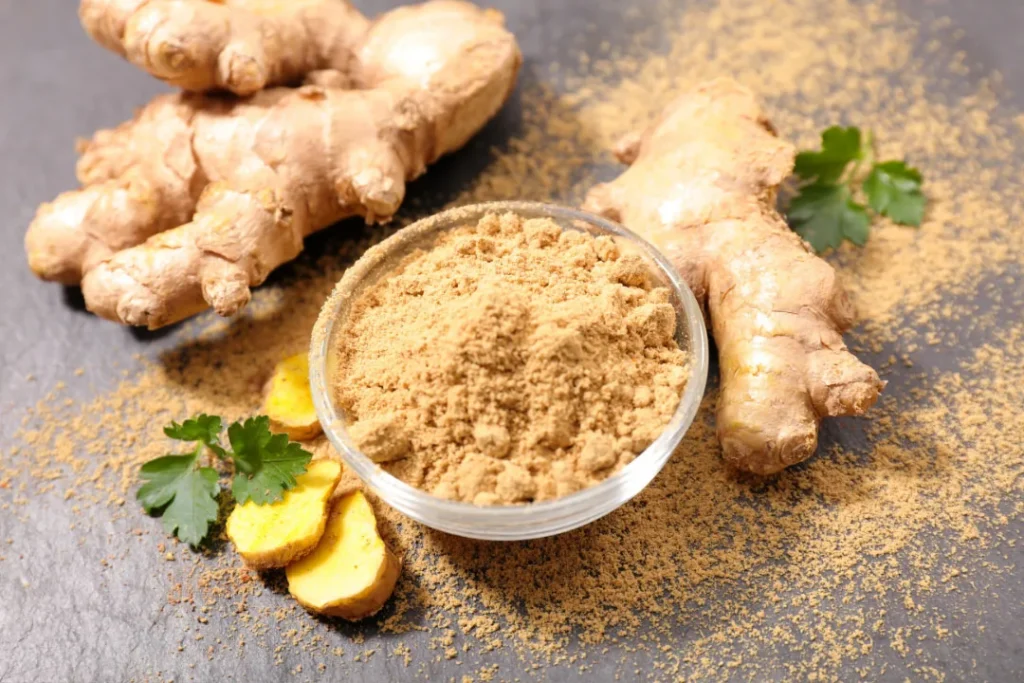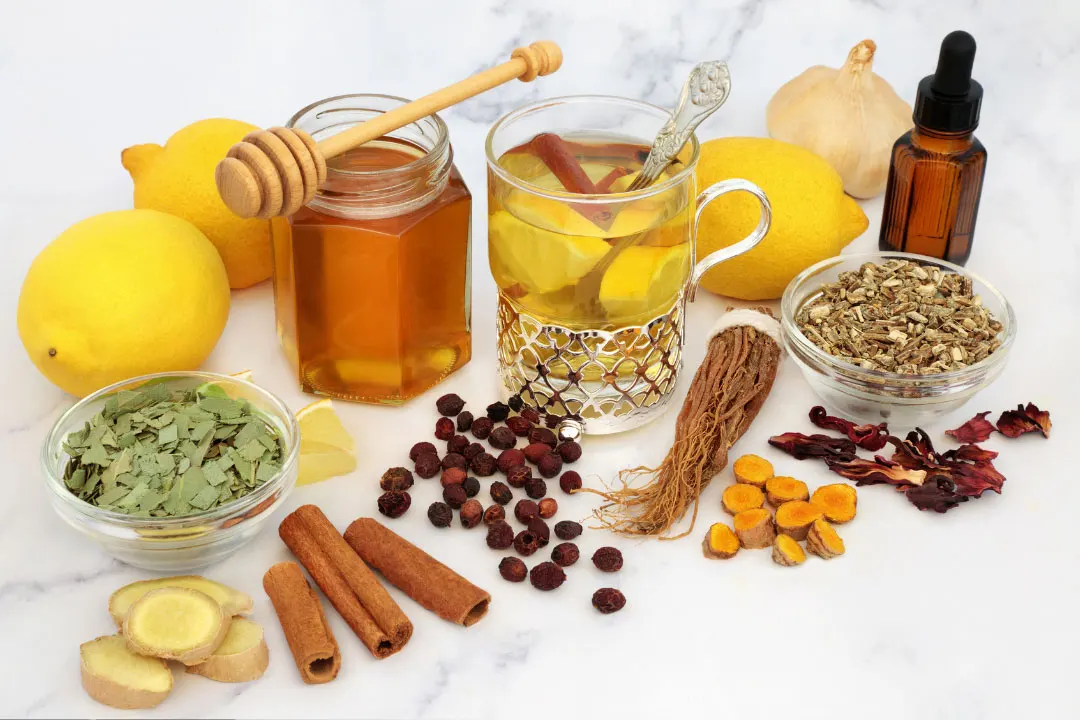Depression is a mental health condition that affects millions of people worldwide. It is characterized by persistent feelings of sadness, a lack of interest or pleasure in activities, changes in appetite and sleep patterns, and difficulties in focusing and making decisions. These symptoms can have a profound impact on the daily lives and overall well-being of those affected. While various treatment options are available for depression, including pharmacological interventions and therapy, some individuals may be interested in exploring natural remedies to manage their symptoms.
You May Also Like:
Should You Try Supplements for Gout? Here Are the Facts
Reduce Heart Disease Risk with the Top 3 Supplements for Heart Health
Ranking 7 Underrated Natural Remedies for Depression is an original (News7Health) article.
Natural remedies for depression:
St. John’s wort
One natural remedy that has been studied for its potential benefits in managing depression is St. John’s wort. This herb has been used for centuries to treat mood disorders, and studies suggest it may be as effective as certain antidepressant medications for mild to moderate depression. It is believed to work by increasing the levels of serotonin in the brain. When serotonin is at normal levels, your body is more emotionally stable, more calm, and in a happier state, which aids in your ability to focus. Low levels of serotonin are associated with depression.
St. John’s wort has been shown to influence brain plasticity—the brain’s ability to adapt and reorganize itself. It can increase levels of brain-derived neurotrophic factor (BDNF), which is a protein that supports the growth and maintenance of neurons. Both neuroplasticity and BDNF are relevant to maintaining optimal brain function and mood.

Natural remedies for depression:
S-Adenosylmethionine (SAMe)
S-Adenosylmethionine (SAMe) is a naturally occurring compound in the body that plays a role in various biochemical processes, including mood regulation. Several studies have indicated that SAMe may be effective in alleviating symptoms of depression and may work faster than some conventional antidepressants. This compound is used in chemical reactions forming neurotransmitters. Some research has indicated that SAMe might be as effective as certain types of antidepressant medications and can be relied upon to curb the many symptoms of depression. Additionally, research suggests that SAMe has anti-inflammatory properties. Chronic inflammation has been linked to the development of depressive symptoms, so reducing inflammation through SAMe’s potential anti-inflammatory effects could have a positive impact on mood.
Natural remedies for depression:
Omega-3 fatty acids
Omega-3 fatty acids are essential nutrients found in certain foods like fatty fish (salmon, mackerel, sardines) and flaxseeds. They can also be introduced to the body in supplement form. Research suggests that omega-3s may help improve mood and alleviate symptoms of depression. Several studies have indicated that omega-3 fatty acids may have mood-stabilizing effects that are helpful for individuals with major depression who are struggling to find emotional balance. Additionally, omega-3 fatty acids possess anti-inflammatory properties that might help reduce inflammation in the body, including the brain. By addressing inflammation, omega-3s could potentially alleviate some of the underlying factors contributing to depression.
Omega-3 fatty acids are associated with increased levels of brain-derived neurotrophic factor (BDNF), a protein that supports the growth and maintenance of neurons. BDNF is important for neuroplasticity, which is the brain’s ability to adapt and reorganize itself. Enhanced neuroplasticity might help improve mood and cognitive function. Furthermore, omega-3s may influence the body’s response to stress by modulating the release of stress hormones like cortisol. By helping regulate the stress response, omega-3s could potentially reduce the impact of chronic stress on mood.

Natural remedies for depression:
Saffron
Saffron is a spice derived from the flower Crocus sativus. Some studies have suggested that saffron extract may be beneficial in treating mild to moderate depression due to its active compounds. Saffron contains safranal and crocin, which are believed to have neuroprotective, antioxidant, and anti-inflammatory properties that contribute to improved mental health. Saffron may influence the levels of neurotransmitters like serotonin in the brain, which play a significant role in mood regulation. Saffron also has anti-inflammatory effects and is believed to act as an antioxidant to reduce oxidative stress, boost mood, and enhance cognitive function.
Saffron’s modulation of neurotransmitter levels—particularly serotonin, a key player in mood regulation—addresses imbalances associated with depressive symptoms. By affecting serotonin receptors and transporters, saffron might contribute to a more balanced mood. Moreover, saffron’s antioxidant and anti-inflammatory properties might help reduce neuroinflammation, potentially alleviating some of the underlying factors contributing to depressive symptoms. Saffron’s antioxidant compounds could help counteract oxidative stress and its potential impact on mood.
Natural remedies for depression:
Vitamin D
Vitamin D deficiency has been linked to depression, and some studies have shown that supplementing with vitamin D may help improve mood. Vitamin D can be added to your diet as a supplement, or its levels can be enhanced by spending time outdoors in the sunlight, which helps optimize your body’s production of vitamin D. Vitamin D receptors are present in areas of the brain associated with mood regulation, such as the hippocampus.
Some studies suggest that vitamin D may influence the synthesis and release of neurotransmitters like serotonin and dopamine, which are important for maintaining a balanced mood. Vitamin D also has anti-inflammatory properties, and inflammation has been linked to the development of depressive symptoms. By reducing inflammation, vitamin D might indirectly contribute to improved mood.
Additionally, vitamin D receptors are present in the suprachiasmatic nucleus of the brain, which plays a role in regulating the body’s internal clock (circadian rhythm). Disruptions in circadian rhythm have been linked to mood disorders, including depression. Adequate vitamin D levels might contribute to a healthy circadian rhythm.
Furthermore, vitamin D might influence the balance of other neurotransmitters, such as dopamine and norepinephrine, which are involved in mood regulation. By affecting these neurotransmitters, vitamin D could have an impact on overall mood and emotional well-being.

Natural remedies for depression:
Probiotics
The gut-brain connection has gained significant attention in recent years, and researchers are exploring how the balance of gut bacteria (microbiota) might influence mental health, including conditions like depression. Probiotics, which are live microorganisms that can provide health benefits when consumed in adequate amounts, are being investigated for their potential role in supporting mental well-being.
The gut contains a complex ecosystem of microorganisms that can influence various bodily functions, including the production and regulation of neurotransmitters like serotonin. Serotonin is a neurotransmitter that plays a crucial role in mood regulation, and a significant portion of serotonin is produced in the gut. Probiotics may help maintain a balanced gut microbiota, which in turn could support optimal serotonin levels.
Additionally, probiotics have been shown to help regulate the immune response and reduce inflammation in the body, which in turn helps to regulate the production of stress hormones.
Natural remedies for depression:
Turmeric
Studies have found that turmeric, a spice commonly used in Indian cuisine, may have antidepressant properties and could be a beneficial addition to treatment for individuals struggling with depression. Laboratory studies have shown that curcumin, one of the active ingredients in turmeric, has potential as an antidepressant agent. Curcumin has been found to have various potential therapeutic effects, including anti-inflammatory, antioxidant, and neuroprotective properties.
Depression has been associated with chronic inflammation in the body, and turmeric’s anti-inflammatory properties may help to counteract this inflammation and alleviate depressive symptoms. In addition to adding turmeric to your diet, it can also be consumed in supplement form to enhance the benefits on the body. Go Gold, a product offered by Healthy Truth is one of the market’s best and most reputable sources of high-quality turmeric. It contains powerful, trusted ingredients that help to reduce inflammation. Go Gold is a clean, plant-based choice that does not contain additives and is gluten and dairy-free, making it an easy choice for most consumers. Go Gold supplements are designed to be easily digestible, utilizing a specialized sprouting process.
Turmeric’s potential to alleviate depression through its active compound, curcumin, has demonstrated anti-inflammatory, antioxidant, and neuroprotective properties that suggest a potential role in combating depressive symptoms. When added as a supplement to your diet, the powerful effects of turmeric can be used to optimize overall health and mood, helping to curb symptoms of depression and promote an overall healthier lifestyle.

Fostering a healthier lifestyle through natural remedies for depression
Exploring natural remedies for depression offers a promising avenue for individuals seeking alternative ways to manage their symptoms. These natural options, rich in neuroprotective, anti-inflammatory, and mood-regulating properties, provide a holistic approach to complement traditional treatments. Incorporating these remedies under professional guidance presents unique potential in promoting mental well-being and supporting a healthier, happier life.
Further Reading:
National Library of Medicine: Curcumin in Depression: Potential Mechanisms of Action and Current Evidence—A Narrative Review
Forbes: 5 Science-Backed Health Benefits Of Turmeric
Forbes: 9 Anti-Inflammatory Supplements Backed By Science
Medical News Today: What to know about SAM-e for depression
National Library of Medicine: S-Adenosylmethionine (SAMe) in major depressive disorder (MDD): a clinician-oriented systematic review
Important Note: The information contained in this article is for general informational purposes only, and should not be construed as health or medical advice, nor is it intended to diagnose, prevent, treat, or cure any disease or health condition. Before embarking on any diet, fitness regimen, or program of nutritional supplementation, it is advisable to consult your healthcare professional in order to determine its safety and probable efficacy in terms of your individual state of health.
Regarding Nutritional Supplements Or Other Non-Prescription Health Products: If any nutritional supplements or other non-prescription health products are mentioned in the foregoing article, any claims or statements made about them have not been evaluated by the U.S. Food and Drug Administration, and such nutritional supplements or other health products are not intended to diagnose, treat, cure, or prevent any disease.


